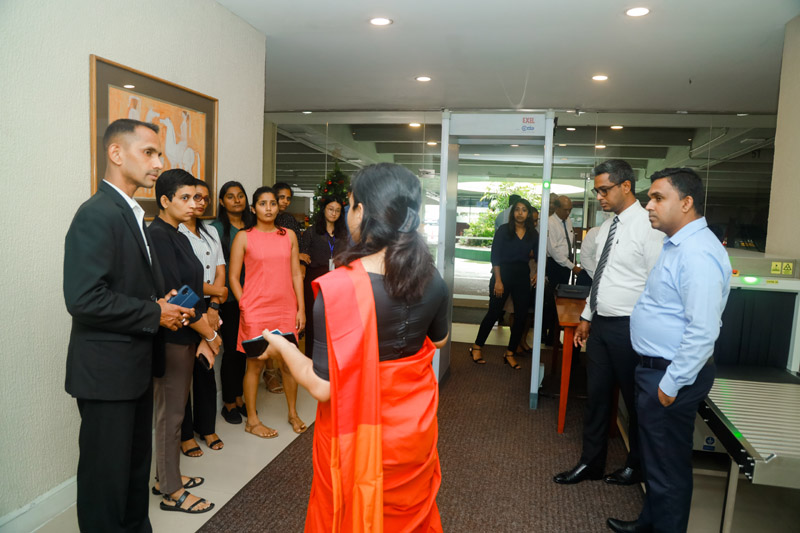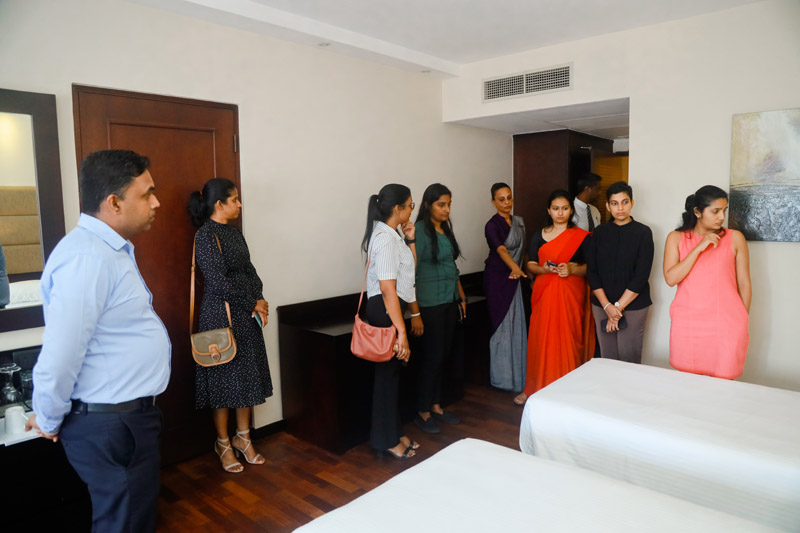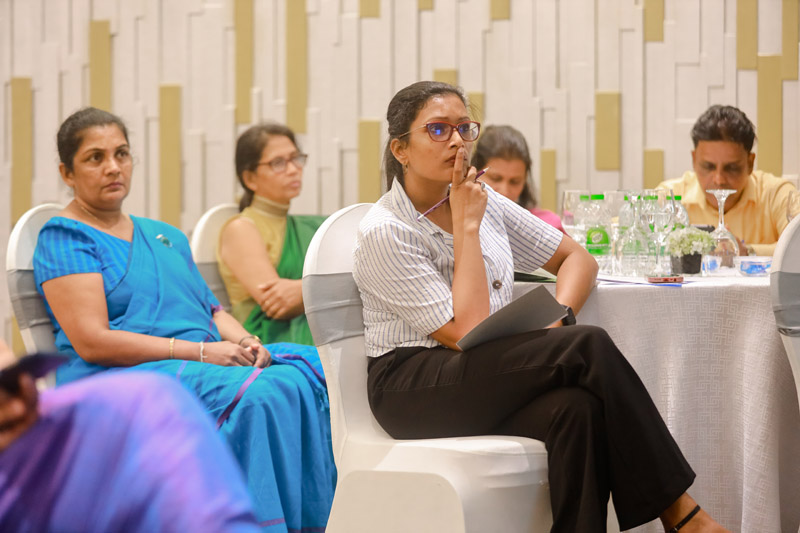Promoting Inclusive Tourism: UN-Habitat Workshop Highlights Accessibility for Persons with Disabilities in the Tourism Industry
11th December 2023, Colombo, Sri Lanka
On the 11th of December 2023, the UN-Habitat Sri Lanka Office hosted a workshop titled “Improving Accessibility for Persons with Disabilities in the Tourism Industry” at Cinnamon Lakeside Colombo 02. The workshop is part of “Mainstreaming “Leaving No One Behind in national urban policies and programmes (SDG 11 & 6) in South Asia” implemented in India, Nepal, Bangladesh, and Sri Lanka. The project objective is that normative concepts of safety, inclusiveness, and access for the disabled that are represented in the urban policies of regional countries. This workshop was organized in parallel with the International Day for Persons with Disabilities 2023 celebrations in Sri Lanka which focused on inclusive tourism. 37 stakeholders in the tourism industry participated in the workshop.
Mr. Laxman Perera, Human Settlements Officer UN-Habitat Regional Office for Asia & the Pacific, in his opening address elaborated about the background of the project. He reiterated that UN-Habitat is committed to working with national and local governments in policy formulation, city level planning and capacity building to mainstream accessibility for persons with disabilities. In conclusion he stated that as tourism is a key sector in the economic recovery of the country, he hoped that the workshop would result in policy papers and investments in mainstreaming accessibility for persons with disabilities in the sector.
An introduction to the International Day for Persons with Disabilities followed by Mrs. Jayamali Wickramarachchi, Director (Acting) National Secretariat for Persons with Disabilities. In her address she stated that, every year, on 3rd December the International Day of Persons with Disabilities is celebrated to reaffirm commitments to the rights, dignity, and welfare of persons with disabilities, and this year’s theme “United in action to rescue and achieve the Sustainable Development Goals for, with and by persons with disabilities”, underscores the critical role persons with disabilities play in achieving the Sustainable Development Goals by 2030. In Sri Lanka, the “EMBO 2023” programme was launched to mark the International Day for Persons with Disabilities, with a focus on inclusive tourism and that the workshop was being held in parallel with the celebrations.
Attorney-at-Law, Ms. Thanuja Navaratne, shed light on legal frameworks such as the United Nations Convention on the Rights of Persons with Disabilities and Sri Lanka’s legislation and guidelines on Protection of the Rights of Persons with Disabilities. She underscored the challenges including social stigma and lack of visibility of disabled persons, stressing the necessity for robust implementation mechanisms, independent monitoring mechanism, and coordinated efforts across relevant ministries. She reiterated that accessibility for persons with disabilities in public buildings was mandatory and that persons with disabilities have a legal right to seek redress for accessible built environments.
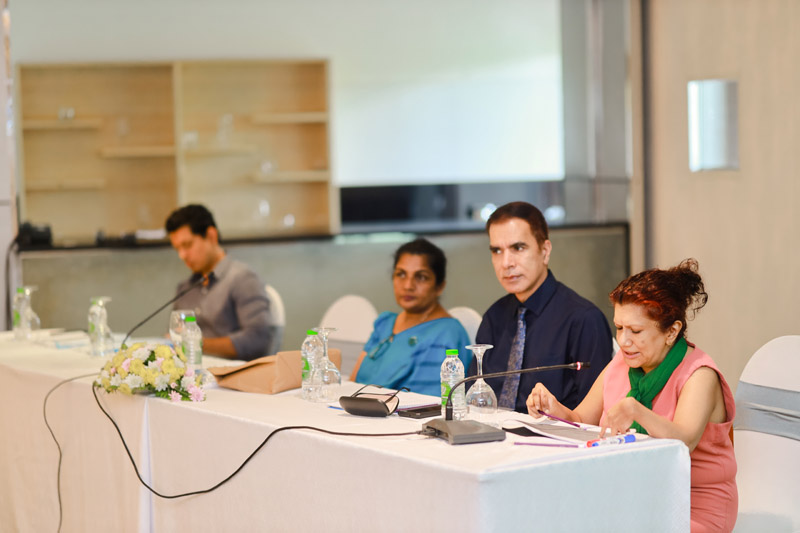
Archt. Tameez Bohoran, Intern, UN-Habitat Regional Office for Asia, and the Pacific, addressed the participants on Accessibility Standards as per the national regulations and guidelines from the Ministry of Health. She also enlightened the audience on innovative low-cost solutions to improve accessibility in existing buildings. She elaborated in detail accessibility requirements in indoor spaces including hotel rooms, toilets, restaurant seating, corridors and elevators and outdoor spaces including parking lots, pathways, and swimming pools.
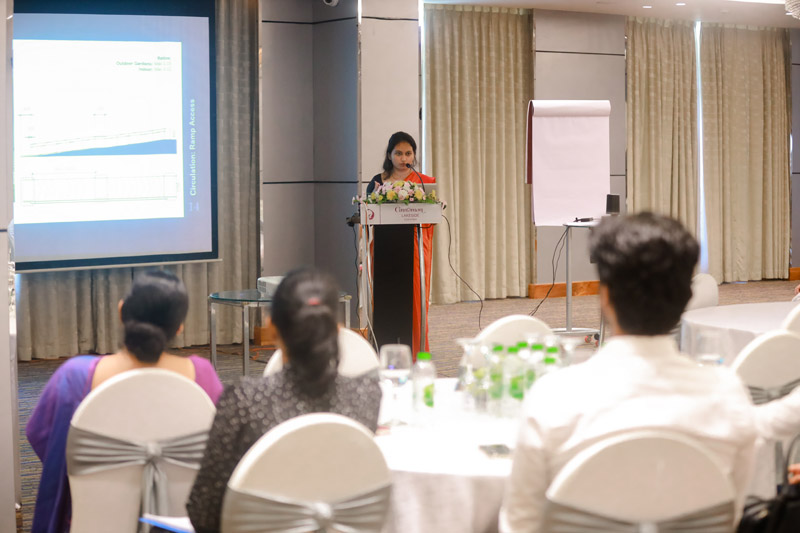
Ms. Bhagya Mahavithanage, Deputy Director (Investor Relations) of Sri Lanka Tourism Development Authority, elucidated approval standards and procedures for inclusive tourism in Sri Lanka. She elaborated the need to improve the accessibility throughout the disabled traveler’s journey and emphasized on enforcement of guidelines and regulations. She stated that one main goals of the Sri Lanka Tourism Development Authority were to transform at least one beach destination as a barrier free destination for persons with disabilities.

The final presentation of the day was on Inclusive Tourism and Market Opportunities by Mr. Buddhisha Senanayake, Manager of Ayu Accessible Tourism by Walkers Tours. Mr. Senanayake commenced with a definition of inclusive tourism, followed by market statistics of the disabled tourist market mainly from Europe. He elaborated Sri Lanka’s potential for the inclusive tourism market by presenting a SWOT analysis of the sector and concluded with an introduction to the “Ayu” brand and how tourism service providers could partner with the brand.

The workshop extended beyond the technical discussions with an experiential tour of accessibility facilities at the hotel. The hotel showcased specially designed facilities for persons with disabilities, including hotel rooms, accessible ramps, special washrooms, and public areas to the participants. They also exchanged valuable lessons learnt from their own experiences.
Ms. Aziza Usoof, Monitoring and Reporting Manager, UN-Habitat-Sri Lanka, concluded the workshop by thanking all participants, service providers and UN-Habitat staff and reiterated that accessibility for persons with disabilities is not an option, but a legal obligation and the path to achieving sustainable development.
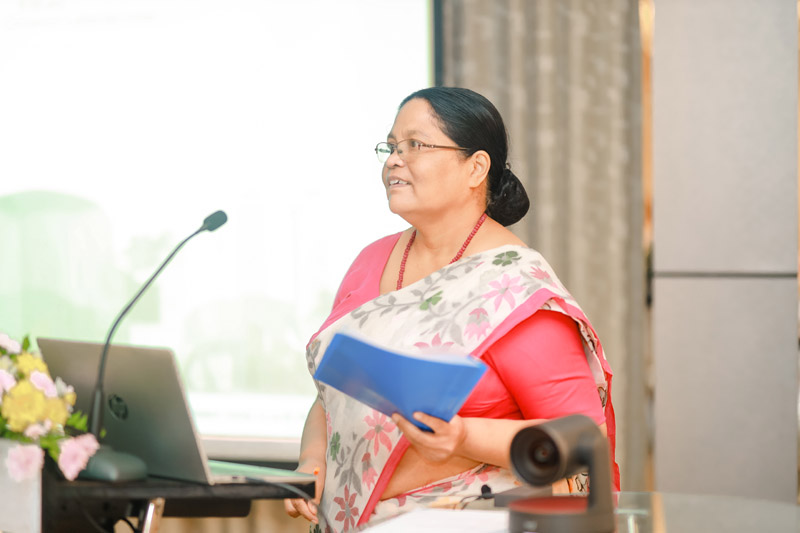
The participants evaluated this workshop as very informative and useful. Mr. Don Chandika Jayakody, Group Health and Safety Manager of Browns Hotels and Resorts, stated that “this workshop was amazing because improving accessibility for disabled persons is a must. It will enable all people to enjoy the beautiful nature of Sri Lanka and will benefit not only persons with disabilities but also the industry and the country.”
Ms. Handuni Munasinghe, Interior Designer of Teardrop Hotels, stated “I didn’t know the importance of the accessibility for the disabled people, as I am new to this industry. I learned a lot from this workshop, and it will be an inspiration for me.”
The active engagement of participants signals a promising trajectory towards inclusive tourism in Sri Lanka. It will ultimately align with the overarching goal of “Leaving No One Behind” and enable everyone regardless of their abilities, to enjoy and savour the breathtaking beauty and rich heritage of Sri Lanka.
